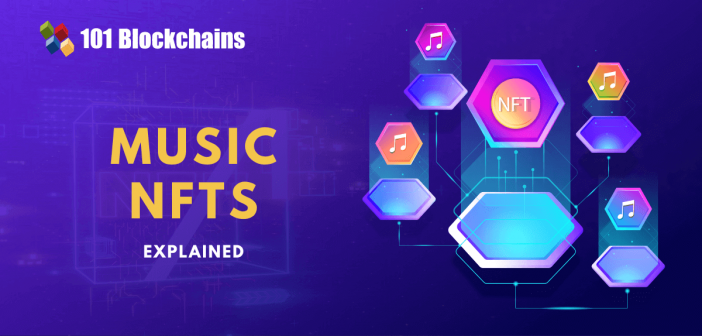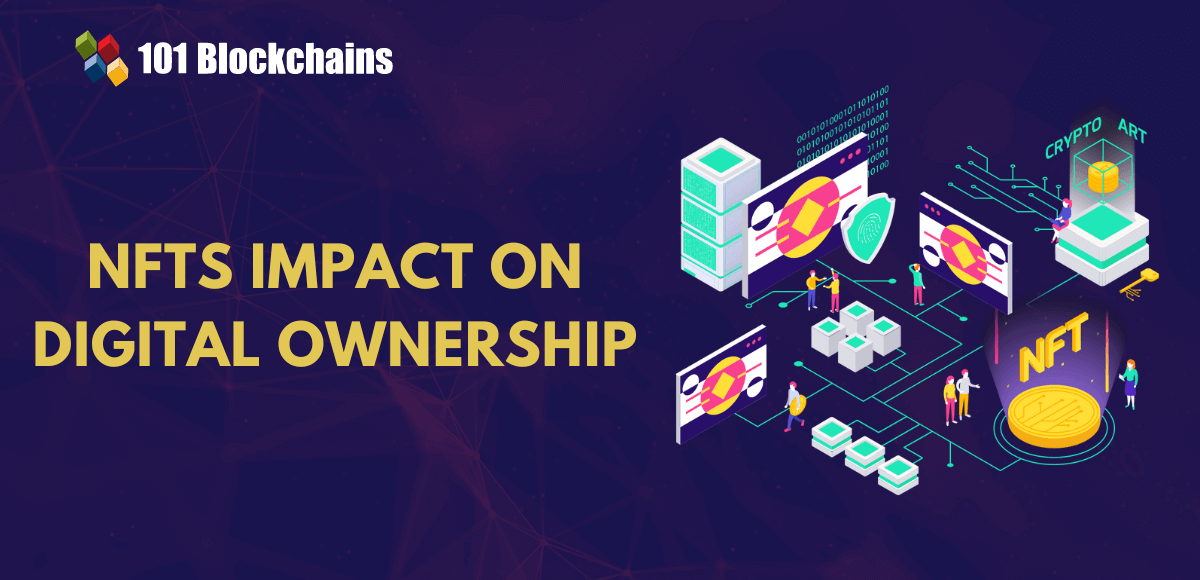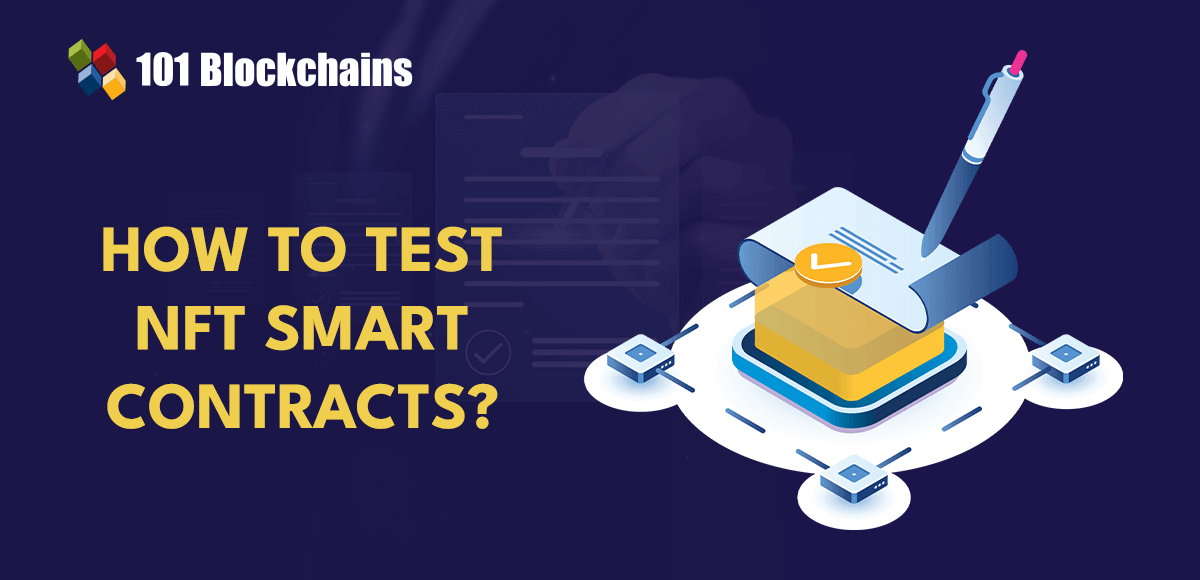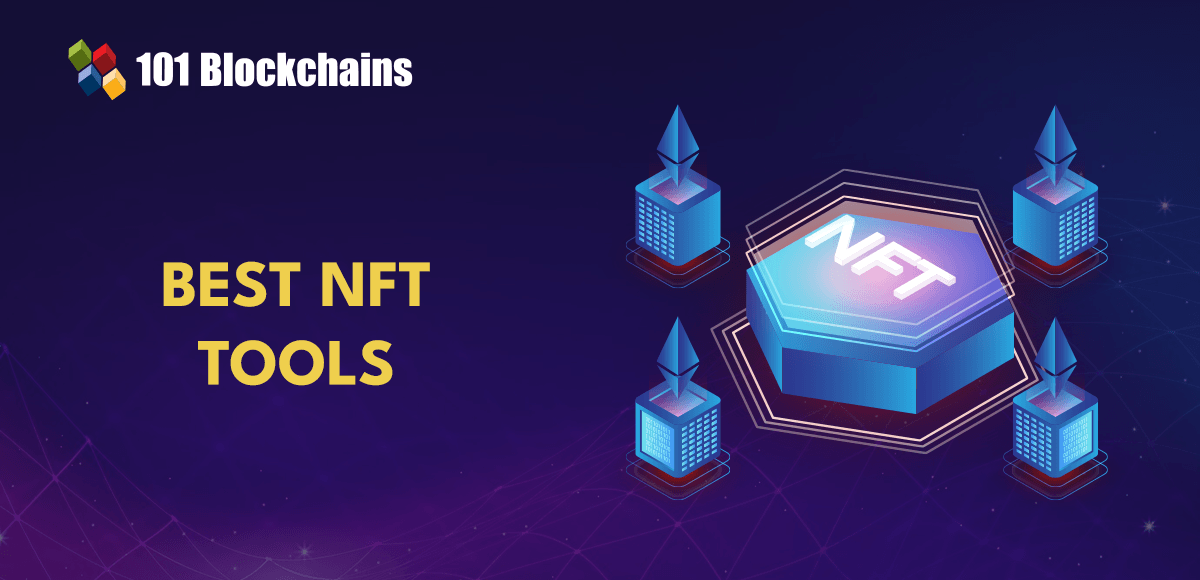Learn how blockchain truly works, master key definitions, and uncover what makes smart contracts so "smart." Dive into the fundamentals, gain valuable insights, and start your blockchain journey today!

- NFT
Georgia Weston
- on October 07, 2022
What Are Music NFTs?
Music is one of the integral parts of every person’s life, and it is present everywhere. The cacophony of birds during the early morning hours or the gentle rustling of leaves as the breeze passes by a tree; everything has music in it if you have the ear for it. Interestingly, music is evolving, and you are curious about “what are music NFTs,” for which you must understand NFTs. Non-fungible tokens or NFTs have been misconstrued as digital images of kittens and apes.
They can also provide a unique representation of ownership of music clips and videos. Music NFTs are basically the work of music artists represented in the form of NFTs on a blockchain network. However, the explanation gives a generic overview of music NFTs without revealing anything about their value. The following discussion will help you learn about the fundamentals of music NFTs and how they work.
Aspiring to Become a Certified NFT Expert? Enroll in Certified NFT Professional (CNFTP) Course Now!
Why Do We Need Music NFTs?
The first thing you need in discussions on music NFTs explained comprehensively would refer to the reasons for bringing them. Let us travel back to the past when music artists gained a lot of acclaim for their work. Even if you have iconic music artists today, the music industry faces more challenges today than ever. For starters, the sales of physical records have plummeted radically, giving way to the rise of online streaming services. Now, online streaming services might appear like an easy channel for music artists to reach a larger audience base with better monetary benefits.
However, online streaming services offer measly payments, even to artists with millions of fans. As a matter of fact, many artists have expressed dissent over the lack of any opportunities to make money out of their work. In such cases, music NFTs can offer feasible solutions for revising the traditional revenue and ownership models in the music industry. Many types of music NFT examples have shown that NFTs could help artists in many ways by increasing fan involvement alongside removing intermediaries such as record labels.
Excited to develop an in-depth understanding of solidity’s best practices and the tools needed for developing and testing an NFT marketplace, Enroll now in the NFT Development Course
Definition of Music NFTs
The growing hype around music NFTs can be attributed to the development of NFTs. Non-fungible tokens are basically digital certificates of ownership attached to a blockchain network. With the help of the NFT, users can prove their ownership over a unique asset. The search for an explanation about a music NFT platform would focus on the element of fungibility, which verifies unique ownership during assessment of NFTs.
Based on the definition of NFTs, you can perceive music NFTs as certificates of ownership for identifying owners of a piece of musical work. Artists can sell the music NFT to anyone, albeit while retaining the rights to make any changes to its content. In addition, the music artist would have complete discretion over how the buyer uses the piece of music.
NFTs also implies that you can have different music NFTs with multiple copies featuring ownership and control rights by multiple parties. The storage of NFTs on a blockchain ensures that only the owners receive the rights for music, videos, album artwork or other exclusive content. Therefore, music NFT projects can not only ensure that followers receive opportunities for unique perks in their music listening experience. Artists could have the benefit of connecting directly with their followers and obtaining revenues without any intermediaries in between.
Want to get an in-depth understanding of non-fungible tokens (NFTs)? Enroll now in the NFT Fundamentals Course.
Working of Music NFTs
The next critical highlight in a discussion about music NFTs would refer to the topic of “how do music NFTs work” as it can show what goes behind the unique NFTs. You would find many similarities between existing models for sales and production in the music industry and principles underlying music NFTs. The artist would decide the type of content they want to offer their audience, ranging from audio files to concert tickets and special merchandise.
In the next step, artists have to pick a blockchain network on which they would develop the NFTs. Subsequently, artists must also choose a music NFT marketplace for launching their NFTs. After the identification of the desired NFT marketplace or platform, artists can notify their fans about the NFT drops. At this stage, the artists can list their music NFTs for auction according to their desired price. What is so special about the working of music NFTs?
The biggest advantage with the working of music NFTs is the fact that they cannot be duplicated. Music artists or producers can opt for distinct modes of distributing NFTs among their fans. One of the common examples of music NFT distribution refers to a one-off sale where the highest bidder can purchase the audio file.
In the case of a one-off sale approach, the buyer would receive ownership of the audio rather than the copyright. On the other hand, artists can opt for distribution of best music NFTs through small copies of the same file. Artists can sell small copies on a marketplace while retaining copyright for the audio file. You can notice how the working of music NFTs removes intermediaries between artists and their fans.
The fans purchasing music NFTs could own a distinctive piece of music by their favorite artist. In addition, fans can also store the music NFTs in crypto wallets and sell them to the highest bidders later. Even if the artists cannot have the ability to sell a sold music NFT further, they can receive royalty payments on the use of the NFT in any use case or repeat sales of the music NFTs.
Want to learn blockchain technology in detail? Enroll Now in Certified Enterprise Blockchain Professional (CEBP) Course
Benefits of Music NFTs for Artists
The explanation for working with a music NFT marketplace might be confusing for beginners. However, the clarity regarding changes in ownership and revenue models within the world of music offers the ideal foundation for the future of music. Artists can leverage the new approaches for distribution and the use of technology in music models. On the other hand, music artists have been experiencing many critical issues pertaining to control over ownership of their work. On top of it, music artists have always experienced problems in controlling the monetization aspect of their art.
With the help of NFTs, artists can regain control over the creative and financial aspects of their work. The growing attention on music NFT projects serves the ideal opportunities for artists to create music that their fans love. Interestingly, artists can connect better with their fans without the creative restrictions from music labels. In terms of profit, music NFTs can help artists sell their work to buyers directly without sharing their profits.
In addition, music NFTs can also help in bundling up special merchandise for sale along with music videos and audio files. At the same time, artists can also make the most of royalty payments for their work on future re-sales of music NFTs. New artists can benefit the most from music NFTs with limited barriers to entry in the world of music NFTs. Artists can also develop better connections with their audience and grow their fan base with unique strategies like airdrops.
Start learning Non-Fungible Token with World’s first NFT Skill Path with quality resources tailored by industry experts Now!
NFT Marketplaces for Music
The popularity of NFT marketplaces in the world of crypto is a striking highlight for everyone. However, music NFTs are considerably new, and you can find a few dedicated marketplaces for music NFTs. For starters, you can also access music NFTs through popular marketplaces such as OpenSea and the recently launched NFT marketplace of Coinbase. If you want a dedicated music NFT platform, then you should try exploring OddKey, a special marketplace for music NFTs.
Developed by Todd MacFarlane and Steve Aoki, the OddKey NFT marketplace has become a popular choice for trade-in NFTs. In addition, you would also discover options like Royal and Opulous with distinct traits. For example, Royal is a suitable platform for purchasing shares from royalties on a song. On the other hand, Opulous claims promising advantages for new music artists seeking entry into the NFT scene.
Example of Music NFT
The best music NFTs are yet to come, and existing examples prove the same. One of the most popular examples of music NFTs refers to the Kings of Leon band in 2021. Kings of Leon released a complete album as NFT on the Yellowheart platform. The content of the offerings in the music album NFT serves as a distinct example. Kings of Leon offered a special album package, exclusive AV art and front-row seats to all their live shows. Surprisingly, the NFTs collected over $2 million in sales and showed the potential of music NFTs.
Start learning Blockchain with World’s first Blockchain Career Paths with quality resources tailored by industry experts Now!
Final Words
The basic definition and explanation for how do music NFTs work delivers a conclusive impression of their capabilities. Music NFTs have been considered one of the revolutionary concepts in the world of music. The uniqueness of NFTs will help music NFTs provide verifiable proof of ownership of audio files and music videos. In addition, the applications of music NFTs could also include different types of assets involved in sales and production in the music industry.
Artists can obtain significant advantages with music NFTs by exercising the rights to ownership and copyright effortlessly. On top of it, music NFTs bring money directly into the hands of artists rather than involving record labels. Learn more about NFTs and explore how they transform the music industry.
*Disclaimer: The article should not be taken as, and is not intended to provide any investment advice. Claims made in this article do not constitute investment advice and should not be taken as such. 101 Blockchains shall not be responsible for any loss sustained by any person who relies on this article. Do your own research!





